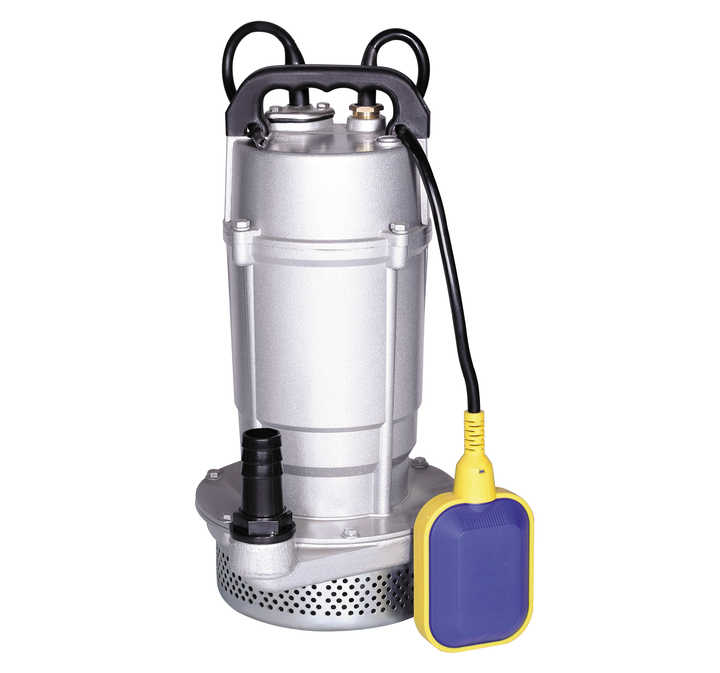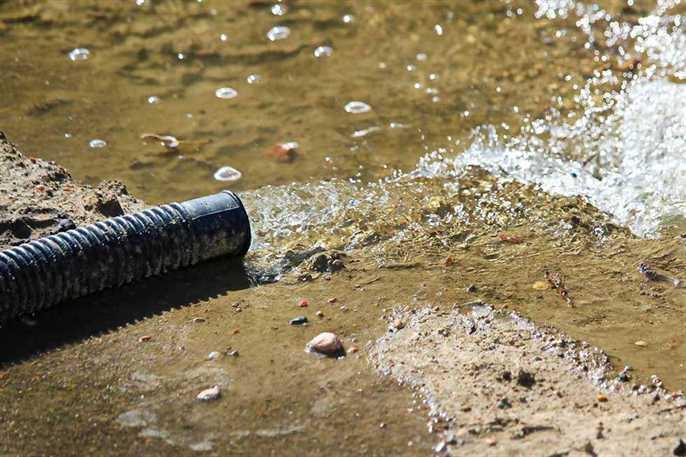We have encountered the article involving How To Effectively Clean A Sump Pump below on the internet and decided it made sense to relate it with you on this page.

Sump pumps are crucial elements in numerous homes, specifically in locations susceptible to flooding or excessive dampness. They help protect against water damages by efficiently eliminating excess water from basements or crawl spaces. Nevertheless, like any other device, sump pumps call for routine upkeep to guarantee they function properly when required one of the most. Cleaning your sump pump is an essential part of its maintenance, and recognizing exactly how to do it effectively can conserve you from pricey fixings and potential calamities.
Intro
Keeping a clean sump pump is important for its correct functioning and longevity. Neglecting this necessary task can result in blockages, malfunctions, and inevitably, water damage to your property. Therefore, finding out just how to cleanse a sump pump is vital for house owners who count on these tools to keep their cellars dry and secured.
Understanding the Sump Pump
Prior to diving into the cleansing procedure, it's essential to have a basic understanding of how a sump pump works. Normally installed in a pit or container below the cellar floor, a sump pump includes numerous key elements, consisting of a pump, a float button, and a discharge pipeline. When water builds up in the pit, the float switch activates the pump, which then pumps the water out with the discharge pipe, far from the structure's structure.
Signs of a Dirty Sump Pump
Understanding when your sump pump needs cleansing is essential for protecting against potential breakdowns. Some typical indicators that suggest a filthy sump pump include strange sounds during procedure, minimized water circulation, and visible debris in the pit. If you see any of these symptoms, it's vital to clean your sump pump without delay to prevent any further issues.
Getting ready for Cleansing
Prior to you begin cleaning your sump pump, it's vital to take some safety precautions. Beginning by turning off the power to the pump to avoid any electric accidents. Furthermore, put on suitable safety equipment, such as gloves and goggles, to secure on your own from dust, particles, and prospective virus.
Step-by-step Overview to Cleaning Up a Sump Pump
Shutting down the Power
Begin by separating the power supply to the sump pump to stop any accidents while cleaning.
Removing Debris and Dirt
Use a pail or an inside story to eliminate any kind of noticeable particles, dust, or sediment from the sump pit. Dispose of the particles correctly to stop it from clogging the pump or the discharge pipe.
Cleansing the Pump and Float Change
When the pit is free from debris, very carefully get rid of the pump from the pit. Examine the pump and the float button for any kind of indicators of damage or wear. Utilize a soft brush or fabric to cleanse the surface areas and eliminate any gathered grime.
Purging the System
After cleansing the pump and float button, purge the sump pit with clean water to remove any type of continuing to be dirt or sediment. This will certainly help make sure that the pump operates efficiently and successfully.
Looking For Proper Performance
Prior to reinstalling the pump, do a fast examination to make sure that the float button triggers the pump correctly. Pour some water right into the sump pit and observe the pump's operation. If every little thing is functioning appropriately, you can reassemble the pump and reconnect the power supply.
Maintenance Tips to Maintain Your Sump Pump Clean
In addition to regular cleaning, there are numerous maintenance ideas you can comply with to maintain your sump pump in ideal condition:
Final thought
Cleansing your sump pump is an essential element of its maintenance and makes sure that it operates properly when you require it the most. By complying with the steps laid out in this overview and incorporating regular maintenance into your routine, you can expand the life expectancy of your sump pump and protect your home from water damage.
6 STEPS ON HOW TO CLEAN A SUMP PUMP PROPERLY
UNDERSTANDING SUMP PUMPS
Your sump pump plays a crucial role in protecting your home by managing and removing excess water. It primarily functions as a “shield”, guarding your basement against the damaging effects of water accumulation. The pump is housed in a sump pit in the lowest part of your basement, and its job is to pump out any water that collects there.
During heavy rainfalls or when snow melts rapidly, water can infiltrate your basement, posing potential risks like flooding, structural damage, and harmful mold growth. Here, the sump pump springs into action, pumping out the intruding water and directing it away from your home.
SAFETY FIRST
Before cleaning, remember to prioritize safety. Disconnect the sump pump from the power source to prevent any accidental electric shocks. Also, wear sturdy gloves to protect your hands from any sharp or dirty components within the pump.
REMOVE THE SUMP PUMP
After ensuring your safety, the next step is to remove the sump pump from its pit. Doing this might require careful maneuvering as you don’t want to damage any pump components. Once removed, clean the sump pit to remove any accumulated debris or sludge.
INSPECT THE PUMP
Inspect the pump for any visible signs of wear or damage. Check the power cord, float switch, and impeller housing. If any components look worn out or damaged, consider replacing them to ensure optimal performance.
CLEAN THE PUMP
Thoroughly clean the pump with warm, soapy water. Make sure to rid it of any dirt, gravel, or other debris that might impede its performance. You can use a toothbrush to clean the small, hard-to-reach parts of the pump.
REINSTALL THE SUMP PUMP
Reinstall the pump into the sump pit Make sure it’s positioned correctly to remove the water effectively Once it’s back in place, reconnect it to the power source TEST THE PUMP
Finally, pour some water into the pit to ensure the pump works correctly. It should start automatically and begin pumping out the water; if it doesn’t, check the power source and the positioning of the pump.
Remember, while cleaning your sump pump is an essential part of home maintenance, hiring a professional plumber for a thorough inspection and cleaning at least once a year is also important. This will ensure that your pump is in optimal condition, ready to protect your home from potential water damage.
BEST PRACTICES FOR CLEANING SUMP PUMP DISCHARGE PIPES
Regular Inspection: Regularly inspect your discharge pipes, especially during heavy rainfall or snowmelt periods. Look for any signs of blockage or damage. Early detection of problems can prevent serious issues down the line. Periodic Cleaning: Over time, sediment and debris can accumulate in the discharge pipes, impeding the flow of water. Regular cleaning helps keep the pipes clear and functioning efficiently. You can use a high-pressure water jet to effectively clean the pipes. Insulation During Winter: In colder climates, discharge pipes can freeze, blocking the outflow of water. Protect your discharge pipes from freezing temperatures by insulating them with foam pipe insulation. This will ensure the sump pump can continue to discharge water even in freezing conditions. Proper Positioning: The discharge pipe should be positioned to direct water away from your home’s foundation. Improper positioning can lead to water seeping back into the basement. Ensure the pipe is long enough and angled correctly. Installation of a Check Valve: A check valve prevents water from flowing back into your sump pit after the pump has pushed it out. Installing a check valve helps maintain the efficiency of your sump pump and reduces the risk of flooding. Minimize Pipe Turns: Every curve or turn in the discharge pipe can decrease the efficiency of water flow. By minimizing turns and bends in your discharge pipe, you can increase the efficiency of your sump pump. https://www.fullspeedplumbing.com/how-to-clean-a-sump-pump-properly9999/

Do you really like more info about How to Care for Your Sump Pump? Create a remark further down. We will be delighted to find out your feelings about this posting. We hope to see you back again before long. Enjoyed our piece of writing? Please share it. Help another person check it out. Thanks so much for taking the time to read it.
Schedule Service